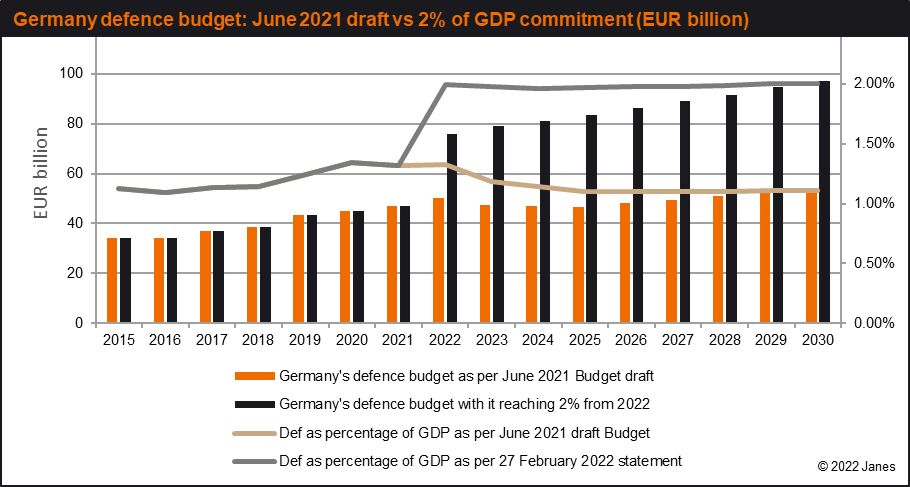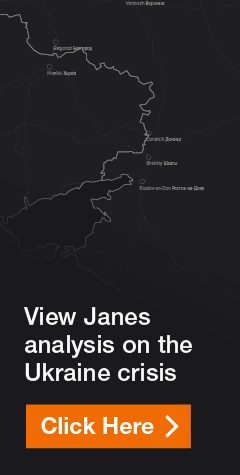- About
- Intara
- Capabilities
- Advisory
- Resources
- News
- Store
28 February 2022
Ukraine conflict: Germany announces EUR100 billion defence fund
by Ana-Roxana Popescu


German defence budget: June 2021 draft vs 2% of GDP commitment. (Janes)
In a government statement to the Bundestag, the German parliament, on 27 February, Chancellor Olaf Scholz announced that the 2022 federal budget would receive a one-off special fund for defence worth EUR100 billion (USD112 billion) to be used for investments and armament projects to modernise the Bundeswehr. This represents more than double the defence allocation for 2021, which amounted to EUR47 billion.
Scholz also committed to allocating more than 2% of GDP on defence, which would mean a significant increase from previous levels, which have fluctuated between 1.1% and 1.4% during the past 20 years. This would represent a major change from the draft budget for 2022 and the 2021–25 finance plan released in June 2021. While that was more generous than the version released three months earlier, adding about EUR1 billion to defence for each year when compared with the March draft, it foresaw cuts in 2023, 2024, and 2025. This would have meant that by 2025, defence as a percentage of GDP would have dropped back to around 1.1%.
Scholz's announcement marks a watershed moment in Germany's defence policy, with the defence budget needing to increase nominally by more than 60% in 2022 to reach the 2% goal. This would make Germany the biggest defence spender in Europe, compared with its current third place after the UK and France, which are reaching the 2% target.
Germany's move to boost defence spending also has implications for the European defence industry, with Scholz noting that the next generation of combat aircraft and tanks must be built jointly by European partners, particularly France. This commitment is important for the Future Combat Air System (FCAS) project, given the ongoing and sometimes fraught negotiations between France's Dassault and Airbus's German-based defence division. In the meantime, Scholz said Germany could acquire the F-35 Joint Strike Fighter (JSF) from the United States to replace the ageing Tornado fleet for nuclear burden sharing within NATO. He also said the purchase of the IAI Heron unmanned aerial system from Israel is going forward, a previously contentious issue in Germany as the platform can be weaponised.
https://www.janes.com/defence-news/news-detail/ukraine-conflict-germany-announces-eur100-billion-defence-fundIn a government statement to the Bundestag, the German parliament, on 27 February, Chancellor Olaf S...
 Details
Details 